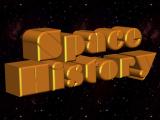If you are not already a subscriber, you are welcome to enter your email address here to sign up to receive the Space History newsletter on a daily basis. Under no circumstances will we release your legitimate email address entered here to outside persons or organizations, and it will only be used for mailing the specific information you have requested.
| Enter your email address here: |
Unsubscribe instructions are included in every newsletter issue in case you decide you no longer wish to receive it.
Note: We record the IP address from which subscriptions are entered to help prevent SPAM abuses.
Race To Space
Someone will win the prize...
... but at what cost?
Visit RaceToSpaceProject.com
to find out more!
1492
Christopher Columbus discovered America, making landfall at San Salvador Island. (This is the Gregorian calendar date, as opposed to the 12 Oct 1492 Julian calender date commonly known.)
ref: www.chicagotribune.com
1833
Born, Alfred Bernhard Nobel, Stockholm, created dynamite and Peace Prizes
ref: en.wikipedia.org
1862
H. D'Arrest discovered asteroid #76 Freia.
1872
Died (age 78), Jacques Babinet, French physicist, mathematician, astronomer, most famous for his contributions to optics
ref: micro.magnet.fsu.edu
1879
J. Palisa discovered asteroid #208 Lacrimosa.
1879
Using a filament of carbonized thread, Thomas Edison tested the first practical electric light bulb, which used less power than previous designs and lasted 13 1/2 hours before burning out.
ref: learning.blogs.nytimes.com
1897
The Yerkes Observatory of the University of Chicago, Illinois, was dedicated at its Williams Bay, Wisconsin, site where it is still in operation.
ref: www.connectingthewindycity.com
1908
J. H. Metcalf discovered asteroid #525 Adelaide.
1911
J. Palisa discovered asteroids #723 Hammonia, #724 Hapag and #725 Amanda.
1915
The first transatlantic radiotelephone (voice) message was sent from Arlington, Virginia to Paris, France.
ref: en.wikipedia.org
1923
The first official public showing of a planetarium projector was made at the Deutsche Museum in Munich, Germany.
ref: en.wikipedia.org
1929
Born, Ursula K[roeber] Le Guin, American science fiction author
ref: www.ursulakleguin.com
1935
E. Delporte discovered asteroid #1374 Isora.
1936
M. Laugier discovered asteroid #2106 Hugo.
1938
H. Alikoski discovered asteroid #1508 Kemi.
1950
Born, Ronald E. McNair, (at Lake City, South Carolina, USA), NASA astronaut (STS 41B, STS 51L - Challenger disaster; 7d 23.25h in spaceflight) (deceased)

Astronaut Ron McNair, NASA photo S78-35300 (21 January 1978)
Source: NASA Image and Video Library
Ronald Erwin McNair (21 October 1950 - 28 January 1986) was one of the astronauts killed in the launch of the Space Shuttle Challenger, mission STS 51-L.
Dr. McNair received a B.S. in physics from North Carolina A&T State University in 1967, and a Ph.D. in the same discipline from the Massachusetts Institute of Technology in 1976. He also received honorary doctorates in 1978, 1980 and 1984. After graduation from MIT, he became a staff physicist at the Hughes Research Laboratories.
During the 1970s actress Nichelle Nichols of Star Trek fame was employed by NASA to recruit minority candidates for the space program. Dr. McNair became one of these candidates, was selected for the astronaut program in 1978 and had flown a mission on the Challenger in February 1984 as a mission specialist.
Dr. McNair was a saxophonist; before the mission he worked with composer Jean Michel Jarre on a piece of music, Rendez-vous VI. It was intended that he would record his saxophone solo on board Challenger, making it the first piece of music played in space. After the disaster, the piece was renamed Ron's Piece.
ref: en.wikipedia.org
1966
Born, Douglas G. Hurley (at Endicott, New York, USA), Lt Colonel USMC, NASA astronaut (STS-127, STS-135, Crew Dragon Demo-2; over 92d 10.5h total time in spaceflight)

NASA Astronaut Doug Hurley (2 August 2018)
Source: NASA Johnson
ref: en.wikipedia.org
1967
Died (age 94), Ejnar Hertzsprung, Danish astrophysicist (Hertzsprung-Russell Diagram relating stellar type, development stage and luminosity)
ref: en.wikipedia.org
1973
H. L. Giclas discovered asteroid #3695.
1976
Felix Aguilar Observatory discovered asteroid #2550 Houssay.
1982
E. Bowell discovered asteroids #3061 Cook and #3507 Vilas; L. Zhuravleva discovered asteroid #3376; L. G. Karachkina discovered asteroids #3469 Bulgakov, #3516 Rusheva, #3668, #3669 and #3772.
2012
Died, Hans Joachim Oskar Fichtner, German guided missile expert during World War II, member of the German Rocket Team in the US after the war, Head, Electrical Systems Integration Branch, Guidance/Control Division, NASA Marshall Space Flight Center (1960)
ref: en.wikipedia.org
We are going to run out of oil!
Visit SpacePowerNow.org
to help fix the problem.
SpacePowerNow.org - For Human Survival
This newsletter and its contents are Copyright © 2006-2026 by The L5 Development Group. All rights reserved. - Publication, in part or in whole, requires previous written permission. - Academic or personal-use citations must refer to http://L5Development.com as their source. Thank you for your cooperation.
Space History Department
Resources
The L5 Development Group Home Page
The L5 Development Group Keyword Access System
Space History for October 21 /
Webmaster /
Script last modified August 23, 2018 @ 6:05 am
Copyright © 2006-2026 by The L5 Development Group. All rights reserved.
Hosted by FKEinternet



